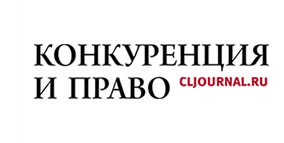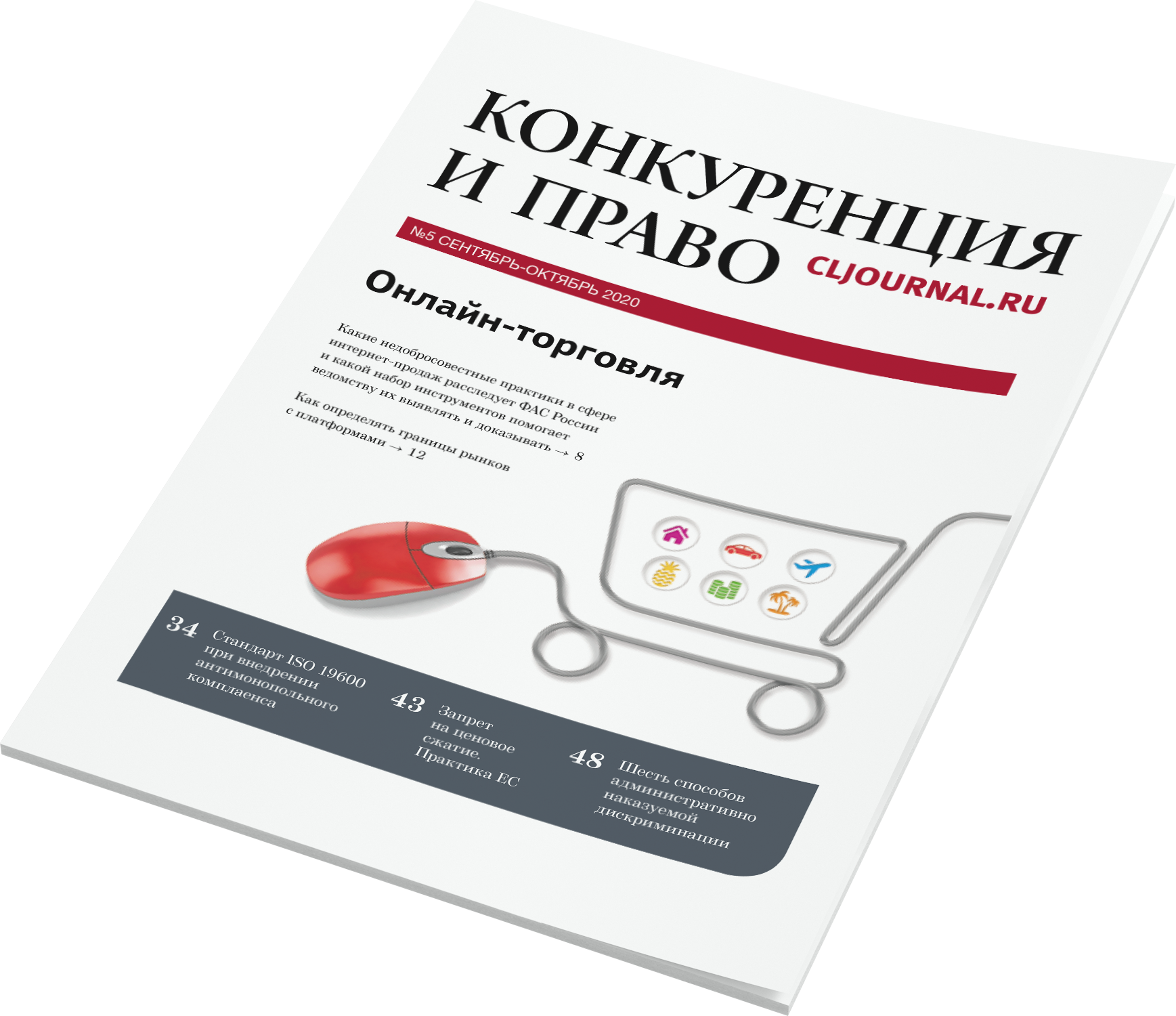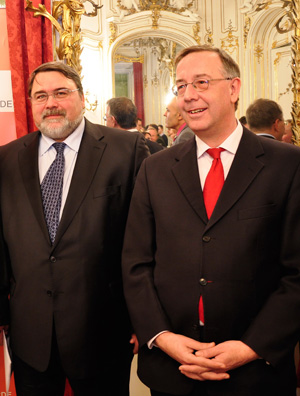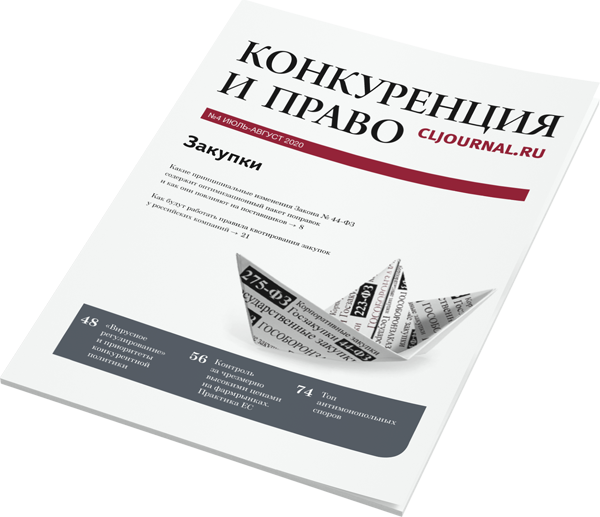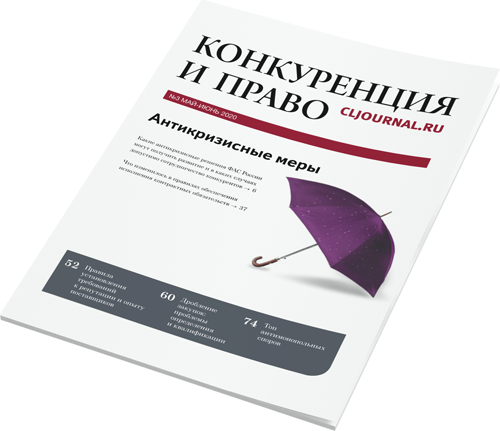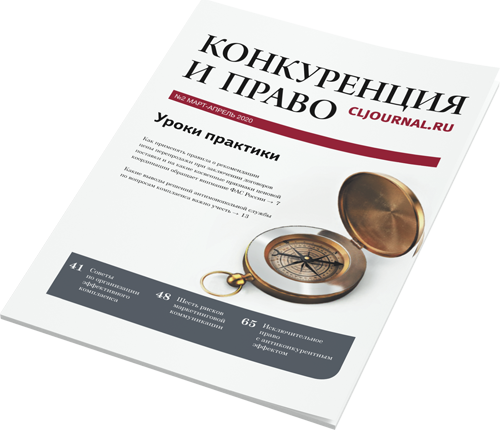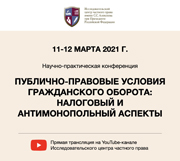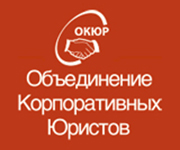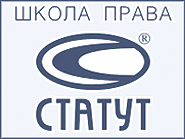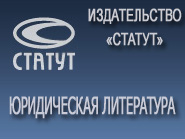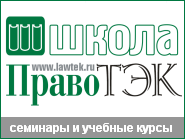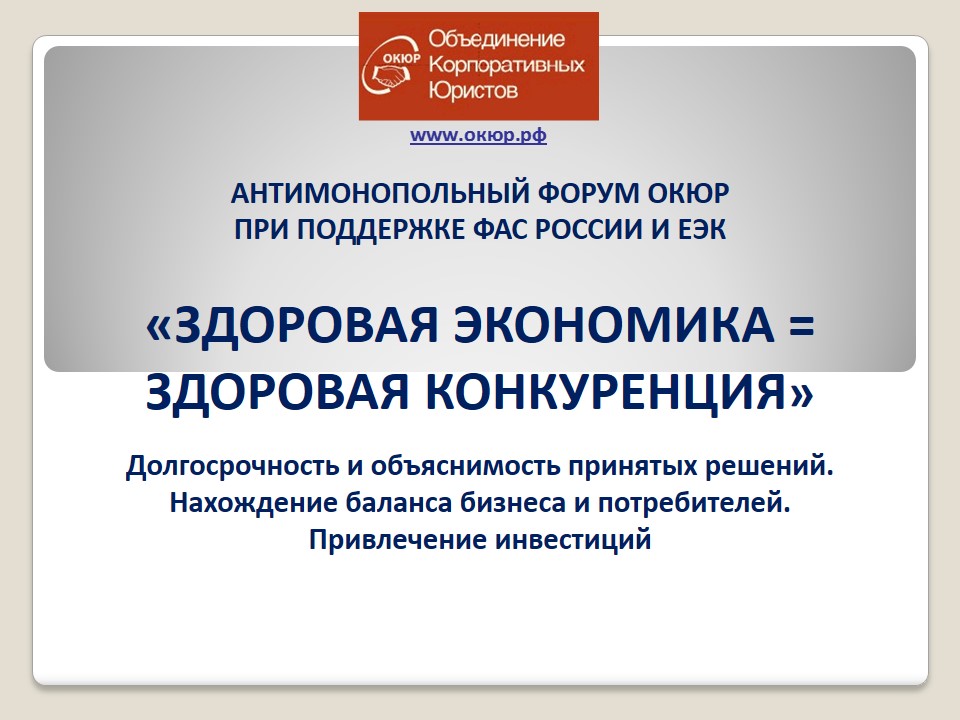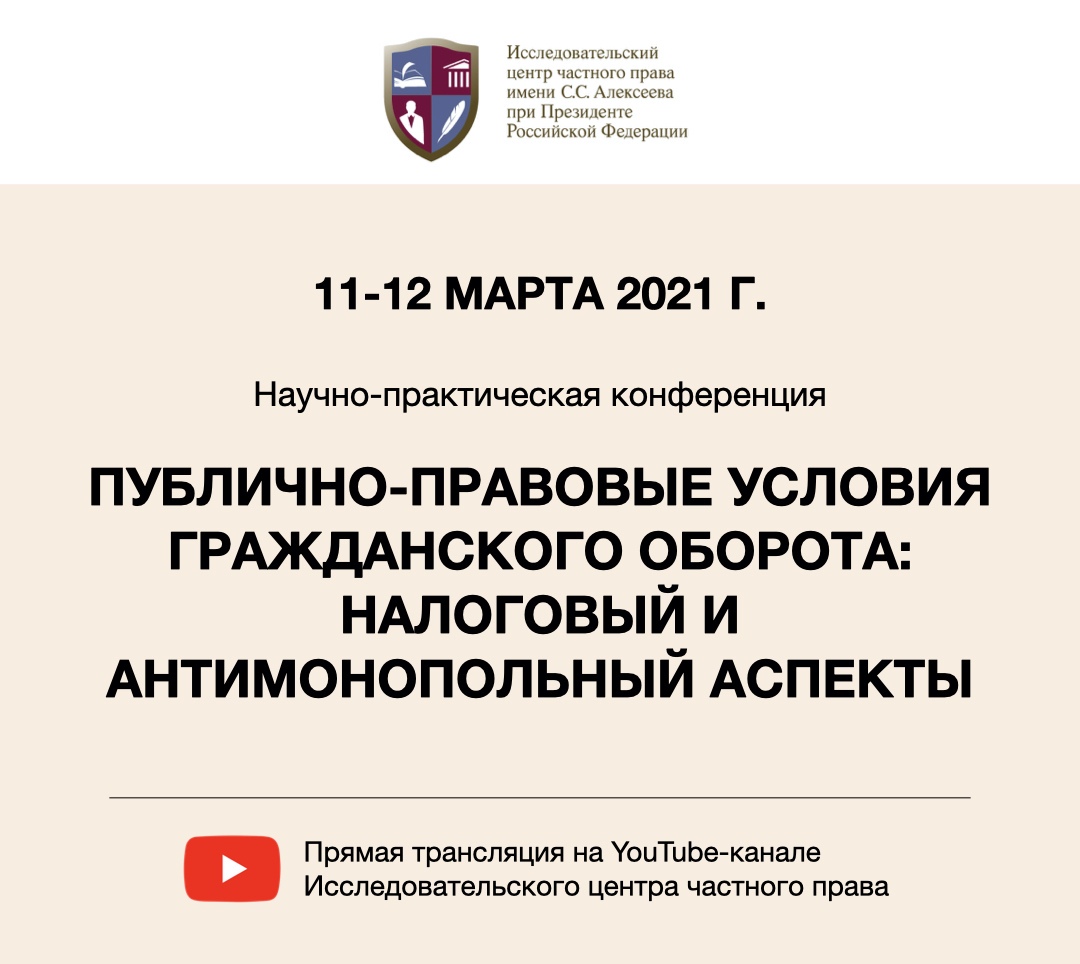|
||||||

In this exclusive interview to Elena Sokolovskaya, the lead expert of Competition and Law magazine, Dr. Theodor Thanner, General Director of the Austrian Federal Competition Authority, speaks about the main principles of competition regulation in Europe, how different countries cooperate to solve competition control problems and, in particular, about the international working group which is a joint effort of the Russian and Austrian antimonopoly authorities. Dr. Thanner, what are the main principles of competition regulation in Austria? - The Austrian Federal Competition Authority (FCA) was established as a monocratic authority with the Competition Act (Wettbewerbsgesetz) in 2002. The Director General is independent from orders of the ministry, although the Austrian Federal Competition Authority administratively belongs to the Ministry of Economics. The Authority has to take care of a well functioning competition in Austria. The FCA promotes public awareness concerning cartel and antitrust practices by means of publicity, transparency and external communication in order to deter antitrust offences and to facilitate their detection. The Austrian system is characterized by the separation between investigating and decision making powers. The Austrian Federal Competition Authority acts like a public prosecutor, but independent. It is the investigating body and acts as the legal party in cartel cases. The FCA has the power to carry through inspections, to lead interviews and pledge information requests. It makes applications for fines to the cartel court and applies the leniency programme. Since the formation of the Austrian Federal Competition Authority in the year 2002 118 Mio Euro in fines have been imposed upon companies for cartel agreements, price-fixing agreements, abuse of market power and similar offences. What are the key developments / trends regarding competition legislation in Austria? - Since 2011 one focus is consumer protection in the retail sector. So far, the authority has based its actions on a comprehensive approach. On one hand side, investigations, trials and fines were used to deploy their deterrent effects in order to stop widespread practices of resale price maintenance and trilateral price fixing in different branches of the retail sector. On the other hand side, the FCA triggered a process of enhancing prevention and compliance mechanism in close cooperation with stakeholders, experts and practitioners. One of the major difficulties the investigators face at the moment is the possibility of preclusion of anticompetitive violations while investigations are still in progress. The FCA has achieved the commitment of the legislator to change this rule, so that enterprises trying to protract the length of the investigations, henceforth, will have no chance to avoid condemnation for their anticompetitive infringements. With regard to the gas and oil industry, in which the FCA has conducted market inquiries and found irregularities, the shifting of the burden of proof will be legally implemented: In the future, providers will have to prove that their energy prices are justified.
Which institutions are - from the side of the Austrian authority - considered to be most effective in regulating competition today? - While investigations, trials and fines are one way to combat infringements of competition law, the FCA also encourages enterprises to prevent infringements in advance. In this context, the authority has established a monthly forum on hot topics concerning competition law enforcement in Austria. These "Competition Talks" are targeted towards undertakings, practitioners, experts and agents from the authority and allow them to engage in fruitful discussion. Topics presented until now have included the reform of the Austrian Competition Law, the conduct of dawn raids and connected legal questions, competition law and media, competition monitoring, vertical restraints and the new leniency guidelines 2013. Furthermore, in April 2013 the FCA organised a two-day conference on prevention and compliance, in which Olga Sergeeva, the Head of the Department for Control over Financial Services of the FAS Russia took part. She moderated one of the three Conference’s round tables on the following subject “Leniency and Compliance” and in detail presented the Russian experience in the implementation of the leniency program provide for by the Code for Administrative Violations of the Russian Federation. How does Austria ensure that its competition regulation methods remain in line with today´s realities? - Cartel agreements and market power abuse harm competition and can lead to a host of negative effects that result in enormous economic damage. Examples of possible economic effects are inflated prices, less choice for undertakings and consumers and reduced innovation. Companies that are affected by illegal practices or are participants to illegal practices and wish to terminate this participation, can make a significant contribution to the discovery of these infringements by applying for leniency. In the Austrian Authority we are alert to the changes that take place in the global economy and regularly evaluate the given legal framework. Through the close cooperation with other authorities we know about best practices worldwide and try to implement them into our work. Enterprises that are involved in cartels often act on an international level, therefore we want to develop the close cooperation with other authorities further, so we could combat cartel infringements even more effectively. We appreciate the efforts from the side of the Russian Authority to strengthen the cooperation with other authorities in the field of the fight against cartels and will support this move. It is worth noting that the Austrian Authority supports the FAS Russia in its idea to create the International Anti-Cartel Organization as an analogue of the Interpol. The goal of this organization is to guarantee interaction among competition authorities of the state parties in cartel investigations. It will function based on the following main principles: openness for membership, respect for national sovereignty, guarantee of confidentiality of information transferred, and broad powers in cooperation with other government organizations when detecting cartels. What are fundamental principles of the relationship and cooperation between the competition authorities of Austria, Russia and other countries? - Since we are facing a global economy, cartel infringements and anticompetitive behaviour are international problems. The Austrian Federal Competition Authority is, of course, member of the European Competition Network and therefore, legally connected to the other members of the European Union. We are also members of the International Competition Network, the OECD and the UNCTAD, and therefore actively involved in the projects of these organizations. Nevertheless, we are inclined to find strategic partners also beyond the boundaries of the European Union or existing organizations. Therefore, we are happy about the close cooperation and friendship with the Russian Federal Antimonopoly Service and other authorities worldwide. We have already signed a number of agreements, implementing our cooperation. Regular meetings and seminars, where an exchange of experiences takes place as well as the exchange of experts between the authorities are key factors of our good cooperation. It is with a feeling of mutual respect and trust that we are developing common tools in the fight against cartels. The FCA signed an agreement on interaction in the field of competition policy and antitrust regulation in December 2012 with the Eurasian Economic Commission and the Moroccan Competition Council in November 2012. This cooperation strengthens the cooperation in the field of competition and antitrust regulation by implementing practical measures to antimonopoly regulation and the development of a competitive environment. Both agreements have already shown practical results. For instance, in April 2013 member of the Moroccan Competition Council came to Vienna within the framework of the agreement in order to participate in a knowledge exchange programme. Earlier, in May 2011 the FCA and the FAS signed a Memorandum of Understanding to strengthen their cooperation. The agreement includes the following issues: Exchange of statistics concerning inquiries and operations of the two competition authorities, exchange of methodological background, communication about law enforcement, best Practice concerning investigations. On the basis of the Memorandum, in 2011 at the initiative of the FAS Russia and the Austrian Authority the international working group was formed. The goal of the working group is to research fluctuations of prices of oil and oil products. Since the formation of the working group there five sessions, in which the representatives of more than 20 countries from three continents took part, including Austria, Russia, Portugal, Germany, Kazakhstan, Ukraine, the US, Great Britain and other. The sessions were dedicated to methodologies of analysis of the oil and oil products markets, characteristics of wholesale and retail sale, characteristics of markets under the conditions of the oligopolistic structure of markets and of the chains of vertically integrated relations among their participants. One may read on the results of the working group in the joint article of Mr. Theodor Thanner and Mr. Anatoly Golomolzin “Problems of Pricing in the Markets of Oil and Oil Products and Ways of their Solving” published in the Austrian Competition Journal.[1] We are following the changes in Russia in the field of competition with interest, such as the improvement of the legislation and enforcement. Considerable interest is also caused by integrational processes of the Republic of Belarus, the Republic of Kazakhstan and the Russian federation. We are glad to share European experience in the issues of integration with our colleagues and we support the steps towards the formation of the Common Economic Area (CEA). One of such important steps has been done not long ago, when the Model Law "On Competition" was adopted for the CEA of the Russian Federation, the Republic of Belarus and the Republic of Kazakhstan. This is very important that the best world practices and the recommendations of international organizations such as the OECD and the ICN were taken into consideration in the Model Law. To our opinion, in spite of the fact that this document is of a recommendatory character, it will promote the harmonization of the laws and competition law enforcement of the three State-Participants of the CEA and, therefore, transparence and predictability of business. We thank Julia Lipina, translator at the Pepeliaev Group’s translation department, for her assistance. Russian version of interview: http://cljournal.ru/ann2/67/ [1] „Österreichische Zeitschrift für Kartellrecht” (AUSTRIAN COMPETITION JOURNAL), issue No. 4, 2013, pp.123-129, in English. 05 февраля 2014 г.
|
|

